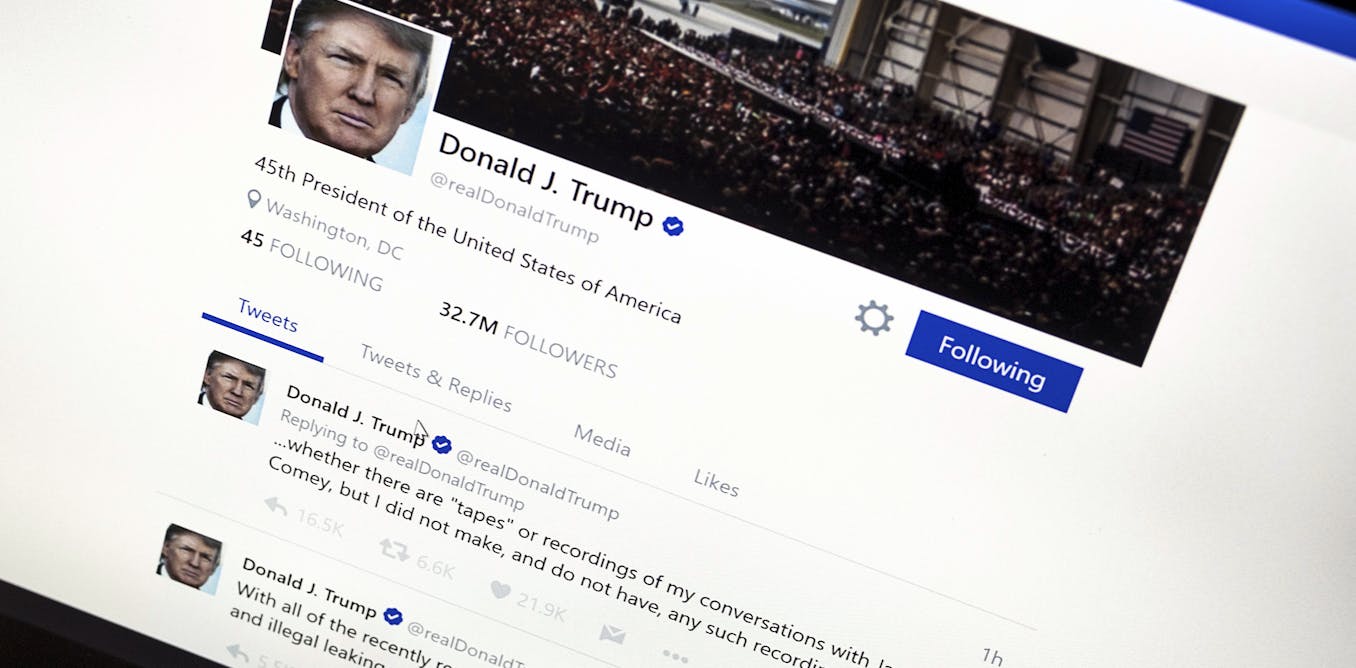A federal appeals court in New York has upheld a lower court’s ruling that President Donald Trump cannot block people from following or viewing his @realDonaldTrump Twitter account. While the case could be appealed further to the U.S. Supreme Court, the upheld decision is a resounding victory for the First Amendment right of citizens to speak to and disagree with government officials in the social media era.

The president uses his Twitter feed to make official announcements. AP Photo/J. David Ake
The appeals court’s ruling is not a surprise to me, as director of the Marion B. Brechner First Amendment Project at the University of Florida. That’s because it, like the lower court decision it upholds, is grounded in the well-established principles of protecting political speech and barring government discrimination against people engaged in public discourse based on their viewpoints.
The district court judge found that Trump blocked Twitter followers from his account “indisputably … [as] a result of viewpoint discrimination.” The appeals court agreed, finding that Trump “engaged in unconstitutional viewpoint discrimination by utilizing Twitter’s ‘blocking’ function.” In other words, Trump cannot block people simply because they criticize him or his policies.
That issue was never really in question in this case, though. The main debate was whether the president’s personal Twitter account was a public forum governed by the First Amendment. More traditional public forums are physical places owned by the government, such as sidewalks, parks and auditoriums. Peaceful public speech and demonstrations in those venues cannot be stopped based on what is being said without a compelling government interest. Twitter, however, is not a real-world space. And it’s run by a private company.
The district court’s ruling found, however, that the company has less control over the @realDonaldTrump account than Trump himself and White House social media director Dan Scavino – also a public official. Their power includes the ability to block people from seeing the account’s tweets, and “from participating in the interactive space associated with the tweets,” in the form of replies and comments on Twitter’s platform.
Also key was the fact that the @realDonaldTrump account is used for governmental purposes. Specifically, the district court judge found that “the President presents the @realDonaldTrump account as being a presidential account as opposed to a personal account and, more importantly, uses the account to take actions that can be taken only by the President as President” – such as announcing the appointments and terminations of government officials.
The appeals court agreed on both points, saying, “the First Amendment does not permit a public official who utilizes a social media account for all manner of official purposes to exclude persons from an otherwise-open online dialogue because they expressed views with which the official disagrees.”
This decision brings the Supreme Court’s longstanding free speech doctrine into the social media era.
Editor’s note: This is an updated version of an article originally published May 24, 2018.
Courtesy: The Conversation
